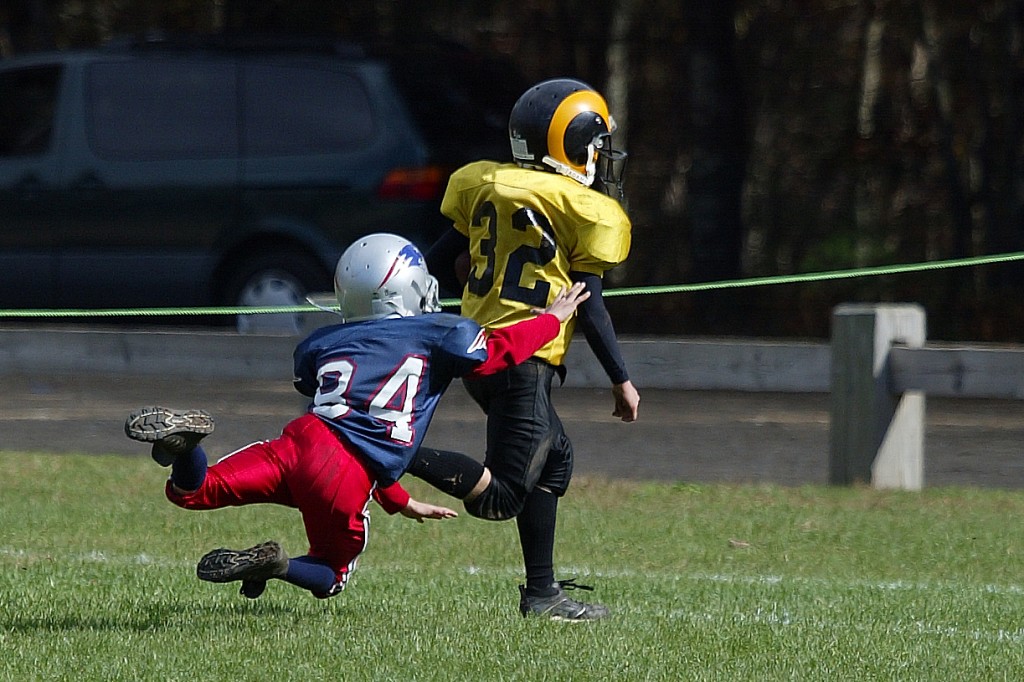
Nothing says fall more than football, whether that means watching a professional game on TV with family and friends or having your child go out for the team. Even with all the excitement around the start of the season, there are still plenty of football safety concerns, especially for younger players.
The biggest question for parents is usually “at what age can my child start playing tackle football?” This question made headlines recently when former NFL coach John Madden spoke out against younger children playing the sport. “I’m a firm believer that there’s no way that a 6-year-old should have a helmet on and learn a tackling drill,” he said in an interview. Because children have proportionally larger heads to their bodies than adults, they’re more prone to injury. Mark Hyman, co-author of Concussion and Our Kids: America’s Leading Expert on How to Protect Young Athletes and Keep Sports Safe argues that kids shouldn’t be allowed to play tackle football until they’re at least age 14.
Even for those who wait until their freshman year of high school to play football, there’s still risk. In 2012, football was responsible for 394,350 emergency roommates in athletes under age 19. These young athletes typically visit the ER due to torn knee ligaments or sprained ankles and head injuries, such as concussions (learn the symptoms of concussion so you know what to watch for). What’s most dangerous to young players is the head trauma, the extent of which we’re still unsure. A serious condition called chronic traumatic encephalopathy has been found in football players much older than those playing in homecoming games, but there is evidence that the damage begins much sooner. Recently, an autopsy of an 18-year-old football, hockey and rugby player showed symptoms of the disease.
Back injuries aren’t as common as knee and ankle injuries, but when they do occur, they can be quite serious. Acute fractures of the cervical and lumbar vertebra can occur, especially with poor tackling technique (spearing) or high impact hits.
So how does a parent keep a child playing football safe? Before the start of the season, your child needs to have a full physical; many teams won’t allow players to try out without one. As always, equipment and technique are incredibly important to preventing injury. Helmets must fit properly and meet guidelines set by the National Operating Committee on Standards for Athletic Equipment. Look into the coach’s certification to make sure your child is learning the best techniques. For the safety of younger players, consider first enrolling them in flag football until middle school. That way, children learn the nuances of the game before graduating to tackle football. Also, if your child is much smaller than the other kids on the field, think about waiting a year or two.
And remember: parents are their child’s best advocate. If your child takes a bad hit on the field, make sure the coach keeps him on the bench. If your child is still experiencing significant pain after the game, I recommend consulting a physician.









